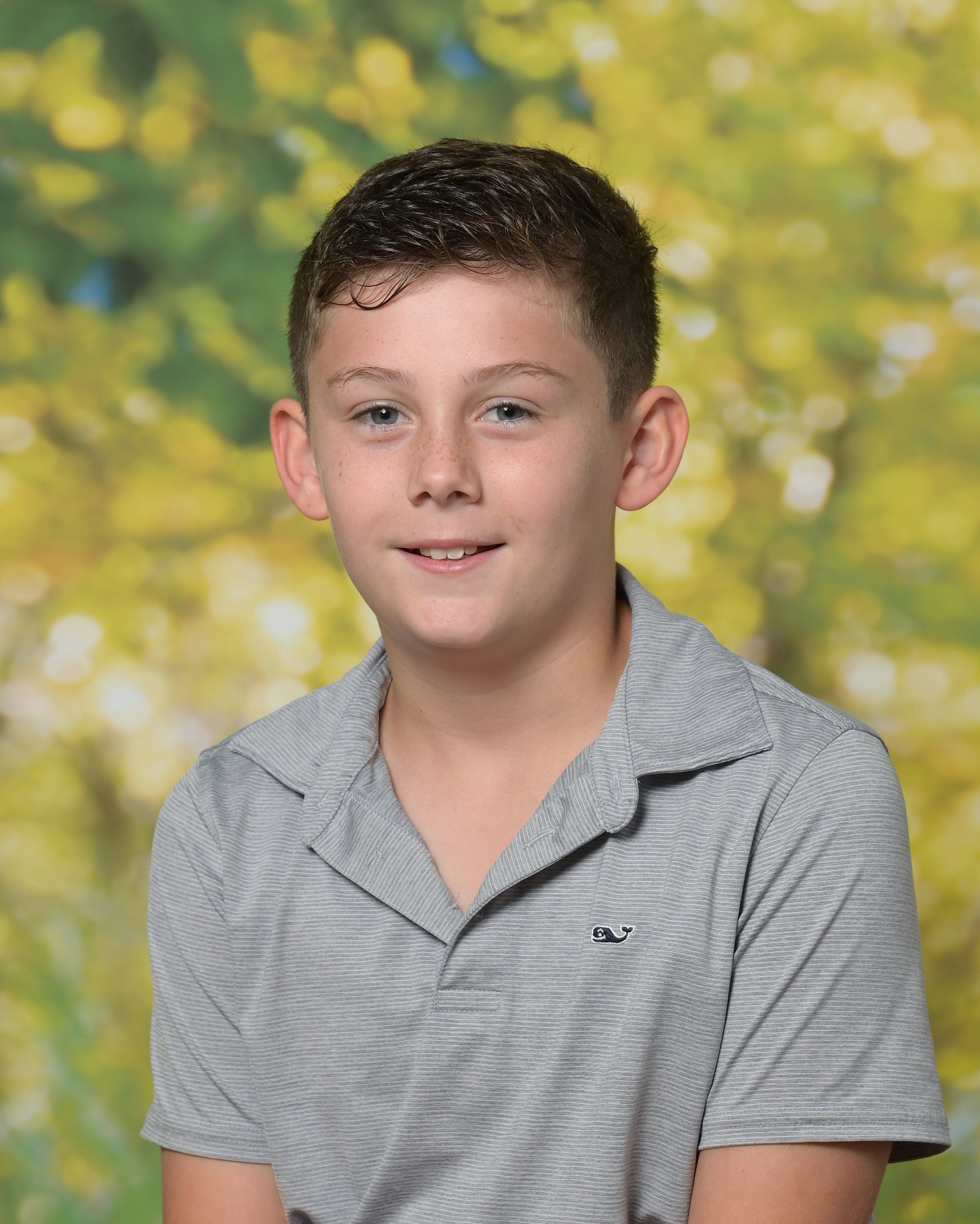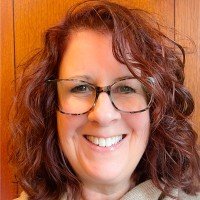The Right to Read Podcast
The Right to Read podcast supports today’s dyslexic thinkers by bringing listeners relevant information on community resources, best practices for dyslexic learners, legislation that supports the Right to Read, and personal and professional success stories. Through our actionable insights, you will learn something that will empower a dyslexic thinker today.
This podcast is made possible by a community collaboration with Verso Studios located at the Westport Library, in Westport, Connecticut.
Megan Hunemuller
Special Education Advocate
Episode 12: Daughter’s Dyslexia Diagnosis Fuels Advocate Megan Hunemuller
Megan Hunemuller is a mom of four who dove into dyslexia research after recognizing multiple signs of the dyslexia in her then six-year-old daughter. She learned all she could about special education and how to provide appropriate intervention in the academic setting so that her daughter could access the general education curriculum like her peers. Over the past seven years, Megan has focused on building long lasting and productive relationships with educators and legislators throughout Iowa. Megan now serves on the Iowa Department of Education’s Dyslexia Board. In this episode, Megan speaks about reigning in her “mama bear” mentality so that she could become an effective advocate for her daughter and other dyslexic students.
Key Takeaways:
Do not take this journey alone. Seek out the support of other parents in your own community – those who are willing to share their knowledge about the diagnosis and how to secure special education services.
Decoding Dyslexia of Iowa has been an incredible resource for Megan. The organization aims to raise dyslexia awareness, empower families to support their children, and influence policymakers and educators on best practices to identify, remediate and support Iowa students with dyslexia.
Knowledge is power! Megan’s education through the Dyslexia Training Institute instilled a new sense of confidence that helps her as she advocates for her daughter and other families.
Remember, when you’re advocating for your own children – they are always watching! Megan’s daughter credits her own self-advocacy success to watching her mom advocate for her.
Links from the episode:
Evan Bernheim
Fifth Grade Student
Episode 11: Fifth Grader Evan Bernheim Shares His Dyslexia Journey
Evan Bernheim is the inspiration behind Right to Read Advocacy! The organization’s founder Jennifer Bernheim (mom to Evan) launched Right to Read Advocacy to educate and empower other families as they navigate the dyslexia diagnosis. Evan currently attends a specialized school for students with language-based learning disabilities. He’s in his third year of receiving intensive Orton-Gillingham based instruction and he’s thriving. In this episode, Evan talks about the challenges that come along with dyslexia, shares why he loves the specialized school, and offers advice to other dyslexic students.
Key Takeaways:
For some students with dyslexia, a school that focuses on teaching students with language-based learning disabilities may provide a more supportive environment.
Dyslexia is very common - about 1 in 5 people have dyslexia.
Evan recommends Jamie Oliver’s book – Billy and the Great Adventure.
Students with dyslexia may exhibit strengths including curiosity, great imagination, a good understanding of new concepts, surprising maturity, and a larger vocabulary than typical for their age group.
Links from the episode:
Dr. Gillian Donovan
Licensed Clinical Psychologist
Episode 10: How to Support a Child Who is Experiencing Anxiety
Dr. Gillian Donovan is a clinical psychologist licensed in Connecticut and New York. She specializes in treating mood and anxiety disorders in adolescents and adults. Dr. Donovan works within a multi-theoretical framework to offer the most effective treatments for her patients, with an emphasis on Cognitive Behavioral Therapy. In this podcast episode, Dr. Donovan discusses supporting an anxious child who may be refusing to go to school, determining whether a child’s anxiety is associated with their learning disability, and knowing when to seek professional help for your child’s anxiety.
Key Takeaways:
School refusal is a big issue – and it’s one that parents feel alone and isolated with. If your child starts refusing to attend school, it’s important to intervene as early as possible and to let the school know.
The school counselor's purview is supporting your child with respect to their learning and accessing school. If you have questions or concerns with your child’s home life or anything happening outside of school, even sometimes just purely social situations, it's important to consider seeking counseling support outside of school.
If your child’s anxiety starts impacting any kind of major functioning of their life such as sleeping, eating, socializing, attending the activities they usually like to do, going to school, family life, etc. then it’s time to consider speaking with a professional.
Parents should educate themselves on their child’s diagnosis and also find a way to support themselves whether through a peer group, books, podcasts, or advocacy organizations.
Links from the episode:
Christine Lai
Special Education Legal Fund
Episode 9: Special Education Legal Fund Provides Access to Attorney and Advocacy Support
Christine Lai is the cofounder and Executive Director of the Special Education Legal Fund, Inc (S.E.L.F.).
S.E.L.F. was founded in 2018 by parents for parents in need with children in the special education system who require legal assistance to secure a free and appropriate public education for their child. In this episode, Christine shares what inspired her to launch SELF, how her grant-making organization supports parents who need legal aid or advocacy, and why SELF families find this grant funding invaluable. To learn more about SELF, visit their website: https://spedlegalfund.org/.
Key Takeaways:
The SELF grant application process is open to families who live in Connecticut or Westchester County and whose income is below 300% of the federal minimum poverty level. The student must have an individualized education plan (IEP) for the attorney grant and an IEP or a 504 for the advocacy grant.
“Families are the lifeblood of our organization, we have been blessed to be a part of their lives when they needed the support.”
SELF reviews grant applications monthly, nine months out of the year. They take in applications, conduct an interview process, and turn the grant approval process around by the end of the month. Since their founding, SELF has awarded 300 grants.
“The journey's long. The journey can be a challenging one, but what I'd say is trust your gut. You are your child's best advocate, and you are also your child's best expert. If you feel like something's not quite right, it probably isn't quite right. So, trust your instinct, trust your gut.”
Links from the episode:
Allison Meyerson
Right to Read Advocacy
Episode 8: What is the Orton-Gillingham Approach and Why is it Effective for Dyslexic Learners?
Allison Meyerson is acutely aware that parents need professional support when navigating the inner workings of school districts, which inspired her to become an educational advocate. She is a retired teacher with over thirty years’ experience with Clarkstown Central School District in Rockland County, NY. Since 2005, she has been a Literacy Specialist providing intensive interventions to students with reading difficulties, primarily those diagnosed with dyslexia. Allison is Level IV Orton-Gillingham certified through Fairleigh Dickinson University. In this episode, Allison discusses the Orton-Gillingham approach, what is included in every Orton-Gillingham lesson, and why this approach is beneficial for dyslexic learners. Connect with Allison at ameyerson@righttoreadadvocacy.com.
Key Takeaways:
The Orton-Gillingham approach is personalized. It uses explicit, direct instruction and is structured, sequential, and cumulative. The approach is all multi-sensory – using visual, auditory, gross motor, fine motor, taste, and kinesthetic (touch) to increase memory storage.
A certified Orton-Gillingham instructor takes a minimum of four classes that each span many months and includes a practicum with supervision, allowing instructors to practice and refine what they are being taught. Conversely, a training consists of (usually) a one-week class without a practicum.
Each Orton-Gillingham lesson should include: A review of skills mastered (cumulative), reading of graphemes, spelling of graphemes, a phonological awareness activity, spelling of words in isolation with targeted spelling patterns or rules, reading of words in isolation with targeted spelling patterns or rules, writing dictated sentences using previously and currently taught skills, and reading controlled passages of text that only contain skills previously or currently being taught.
When children with dyslexia are instructed using a multisensory approach, they can learn to read; however, the materials must be used correctly and with fidelity. By utilizing multiple senses, the dyslexic brain is rewired and the areas of the brain that were being underutilized become engaged.
Links from the episode:
Dr. Melissa K. Hickey
Director at The Center for Literacy Research and Reading Success
Episode 7: How CT’s Center for Literacy Research and Reading Success Supports the Implementation of the State’s Right to Read Legislation ft. Dr. Melissa Hickey
Since November 2022, Dr. Melissa K. Wlodarczyk Hickey has been the Director of The Center for Literacy Research and Reading Success at the Connecticut State Department of Education (CSDE). She joined the CSDE in January 2016 as the Reading/Literacy Director and supervisor of the Academic Office. She has been an educator in Connecticut for over 20 years with a wide range of experiences such as district literacy administrator, literacy instructional coach, middle school reading/writing teacher, and second grade teacher. Prior to joining the CSDE, Dr. Hickey was the Director of Humanities for the Hartford Public Schools. In this episode, Dr. Hickey dives into the role of The Center for Literacy Research and Reading Success and its current initiatives. You can reach Dr. Hickey at Melissa.Hickey@ct.gov.
Key Takeaways:
Connecticut’s Right to Read legislation was initiated by Senator Miller and the Black and Puerto Rican Caucus. It was this legislation that charged the Connecticut State Department of Education with establishing the Center for Literacy Research and Reading success.
“The mission of the Center is to lead statewide change and increase the effectiveness of literacy teaching and learning through advocacy, research, and education so that all Connecticut students are reading at or above grade level independently and proficiently by the end of third grade.”
“We know that students who are not reading by the end of first grade are at significant risk for continued reading difficulties throughout school and beyond. And the impact of low literacy is seen at many levels.”
The Center has collaboratively reviewed and approved a list of scientifically based, evidence-backed reading curriculum models or programs as well as compendiums.
Connecticut also has a state approved list of reading screeners for students in grades k-3. The screening results provide a “pulse” on how the students are reading and if the student is struggling to learn to read.
Links from the episode:Connecticut's Approved K-3 Reading Curriculum Models or Programs
Approved Menu of Research-based Universal Screening Reading Assessments for Kindergarten
Nicholas Solter
Dyslexia Journey Podcast Host
Episode 6: Every Dyslexia Journey is Different with Dyslexia Journey Podcast Host Nick Solter
Nicholas Solter is the father of a dyslexic teen, a dyslexia advocate, and a software engineer. In 2022, he and his wife Sonja, launched the podcast Dyslexia Journey: Support Your Kid. Since then, they have hosted almost 100 episodes to help parents. While our dyslexic kids are growing and facing new challenges that their learning differences may bring, we as parents are also challenged in how to best support them every step of the way. The Dyslexia Journey podcast offers endless insights, tips, and advice from expert guests to help better navigate the journey.
Key Takeaways:
Don't be afraid to do something unconventional or completely out of the box. You don't have to keep your kid in public school.
You need to trust your gut. You need to trust your instinct. If you know that something is off, but the school is telling you that nothing’s wrong- trust yourself that there’s probably something that you should look into.
We've really come to understand that while there are a lot of similarities with dyslexia, everyone's journey is unique.
Links from the episode:Arije-Aike de Haas, Dyslexic and Education Scientist
Dyslexia Journey Podcast: How a Dyslexia Advocate Can Help You!
Catherine Scholl
Non-Attorney Special Education Advocate
Episode 5: Defining Dyslexia
Catherine Scholl brings a unique and personal perspective to educational advocacy, which is rooted in her extensive experience with special education. In addition to being a non-attorney special education advocate, Catherine is a former special education teacher and parent to children with learning disabilities. She is also CERI/IDA Certified and holds an Orton Gillingham Teacher Graduate Certification from Fairleigh Dickenson University. In this episode, Catherine dives deep into the definition of dyslexia and discusses what evaluations help determine whether a student exhibits signs of a learning disability.
Key Takeaways:
According to the International Dyslexia Association, “dyslexia is a specific learning disability that is neurobiological in origin. It is characterized by difficulties with accurate and/or fluent word recognition and by poor spelling and decoding abilities.”
Evaluations that help to uncover specific learning disabilities such as dyslexia include the Wechsler Individual Achievement Test, Fourth Edition; Comprehensive Test of Phonological Processing, Second Edition; Test of Written Language, Fourth Edition; and the Gray Oral Reading Test, Fifth Edition.
“The data drives the plan” [individualized education plan].
“If you are concerned at all that your child is struggling with reading, it is imperative that you address it quickly.”
“Early detection and appropriate intervention are the keys to successful remediation.”
Links from the episode:
Laura Heneghan, Esq.
Special Education Attorney
Episode 4: Parents: These Are Your Rights
Attorney Laura Heneghan is a special education attorney dedicated to a collaborating with families, school administrators, and staff to bring about positive outcomes. As a parent of a child with disabilities, Laura leverages her personal insight and student-centered approach to ensure that children and adolescents who are struggling with disabilities of their own receive the appropriate services and support from their public-school districts. In this episode, you will learn more about parental rights under the Individuals with Disabilities Education Act. Laura discusses procedural safeguards including right to parent consent and notification, right to meaningful parent participation, prior written notice, and more!
Key Takeaways:
“I've learned that knowing you have rights doesn't mean you have to assert them. My experience is that collaboration with your school district many times is the best way to work through issues, but when that isn't working, you need to know what you can do and that it is to exercise these guaranteed civil rights, regarding your child's education.”
“You as a parent have certain rights based on where you are in the process, and this document {procedural safeguards} explains those rights.”
The Individuals with Disabilities Education Act (IDEA) created in 1975 ensures all children with disabilities have the opportunity to receive a free appropriate public education (FAPE)
§504 of the Rehabilitation Act protects qualified individuals from discrimination based on their disability AND provides students with disabilities a free appropriate public education (FAPE- but a different one)
Links from the episode:
Procedural Safeguards Notice, State of CT DOE – Bureau of Special Education
Annika Ahlström
Executive Function Coach
Episode 3: How to Support Your Child’s Executive Functioning Skills
Sklar Certified Executive Function Coach Annika Ahlström discusses executive functioning skills and offers three actionable tips to support executive functioning skills for students with learning disabilities and their families. In her coaching, she teaches families how to embrace their brain differences so all members can thrive.
Key Takeaways:
Executive functions are those cognitive skills that help us to get things done such as organization, planning, and time management, and these are skills that continue to develop over time.
Students with learning challenges often face self-esteem challenges. Through executive functioning coaching, a system is created to help students so they can feel good about themselves and reach their potential.
Actionable tips include using a family calendar in a high traffic area of the home, having weekly family meetings, and using visual timers.
Links from the episode:
Episode 2: Special Education Advocates Share What They Wish They Had Known as Parents
Robin Beauchemin, Megan Hunemuller, and Catherine Scholl
Special Education Advocates
This episode brings together the insights of three non-attorney special education advocates: Robin Beauchemin, Megan Hunemuller, and Catherine Scholl, all of whom are members of Right to Read Advocacy. Their personal experience of supporting their dyslexic children propelled each of them to pursue professional advocacy. Learn what they know now as advocates that they wish they had a better understanding of as parents when they first started the special education journey. Key Takeaways:
If you have a feeling that something is off with your child, do not delay, trust your instincts.
As a parent, you have the right request an evaluation for special education, which provides insight into whether the child has a disability and if they need specialized instruction and support.
As a parent, you are the expert on your child and you’re an equal member of the IEP team.
Be sure to document any concerns/requests by putting them in writing and sharing them with the school. Also, ask for the school team for documentation through Prior Written Notice.
Links from the episode:
Jake Sussman
Founder & President at Superpower Mentors
Episode 1: Mentorship Ignites Confidence in Students with Learning Disabilities
Jake Sussman, Westport Native and Founder of Superpower Mentors, developed one of the world's most effective online mentoring programs designed to empower youth and young adults with learning differences. In this episode, Jake recalls the challenges of being a student with hidden learning disabilities and how his journey, although painful at times, fueled him to launch an organization that would propel the potential of neurodiverse students.
Key Takeaways:
“You can't teach a kid how to learn anything when their entire relationship with it [education] is pain.”
The mission of Superpower Mentors is to empower the next generation of neurodiverse thinkers to confidently succeed in any environment.
The organization is known for its match of mentor-mentees. The pairs are neurodiverse with disabilities including dyslexia, ADHD, autism, dyspraxia, dyscalculia, and Tourettes.
Mentorship supports the child and the family because families should not have to go this journey alone.
Links from the episode:













